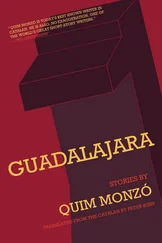Quim Monzó - Gasoline
Здесь есть возможность читать онлайн «Quim Monzó - Gasoline» весь текст электронной книги совершенно бесплатно (целиком полную версию без сокращений). В некоторых случаях можно слушать аудио, скачать через торрент в формате fb2 и присутствует краткое содержание. Год выпуска: 2010, Издательство: Open Letter, Жанр: Старинная литература, на английском языке. Описание произведения, (предисловие) а так же отзывы посетителей доступны на портале библиотеки ЛибКат.
- Название:Gasoline
- Автор:
- Издательство:Open Letter
- Жанр:
- Год:2010
- ISBN:нет данных
- Рейтинг книги:5 / 5. Голосов: 1
-
Избранное:Добавить в избранное
- Отзывы:
-
Ваша оценка:
- 100
- 1
- 2
- 3
- 4
- 5
Gasoline: краткое содержание, описание и аннотация
Предлагаем к чтению аннотацию, описание, краткое содержание или предисловие (зависит от того, что написал сам автор книги «Gasoline»). Если вы не нашли необходимую информацию о книге — напишите в комментариях, мы постараемся отыскать её.
Gasoline — читать онлайн бесплатно полную книгу (весь текст) целиком
Ниже представлен текст книги, разбитый по страницам. Система сохранения места последней прочитанной страницы, позволяет с удобством читать онлайн бесплатно книгу «Gasoline», без необходимости каждый раз заново искать на чём Вы остановились. Поставьте закладку, и сможете в любой момент перейти на страницу, на которой закончили чтение.
Интервал:
Закладка:
“Why did you smile just now? Where are you going? What dumb questions, I’m sorry. Am I bothering you? Do you mind if I walk along with you?”
It doesn’t matter to him that she doesn’t answer. On the sidewalk a silver-painted bald man is imitating the movements of an automaton to such perfection that the group of rubberneckers gathered there gives him an ovation. Humbert would like to be capable of performing in public, doing something like that man is doing. He takes out the little notebook and jots down in the last remaining corner: “Silver-painted man moves like a robot. Reflect upon this. Body art?” He adds another line: “Hildegarda’s face, watching him: joyful.”
“What are you writing down?”
“I take notes so I won’t forget what I have to do.”
The woman smiles at him. Humbert thinks it is the prettiest smile anyone has ever smiled at him. He would like to kiss her on the spot. He wants to embrace her, feel the warmth of her body. He wants to kiss her from her toes to her eyelids. He wants to caress her, make love to her (make love to her?) without even undressing her. He would have gone to the ends of the earth with her, traversing deserts and streams, glacial crevasses. . Note in notebook: “Review (and, if necessary, recover) romantic symbolism.” He takes her hand and kisses it.
“Are you crazy, what are you doing?”
•
“Are you crazy, what are you doing? We don’t even know each others’ names.”
She laughs with her white teeth, gossamer lips, and brilliant eyes, dark as the night. He feels he has never met a woman like her. They kiss and caress each other. Humbert has successfully undone her bra without taking off her sweater. They are in the car, close to the docks and meatpacking houses, parked on a silent and deserted street. Humbert isn’t entirely sure whether the possibility of some guy’s showing up with a knife adds excitement to the moment or not. She takes off her hat. He kisses her again, and her lips open like a shell. He tells her his name is Humbert.
“My name is Alexandra.”
Was this some kind of joke. .?
“Alexandra?”
“Yes. Don’t you like it? You made a face. It’s not such a strange name. .”
“You’re kidding.”
“What do you mean?”
He knows by the way she looks at him that she isn’t kidding. Her name is Alexandra and it has never been Hildegarda, and never will be, and she will never be the Hildegarda he thought he had in his arms. All at once those supple lips, those legs wrapped in black, that tiny skirt that Humbert has slowly been pushing up, make no sense at all. . He tries to visualize a scene that will keep him from losing interest in the woman, at least sexually. He tries to forget that her name is Alexandra, he tries firmly to believe that this is Hildegarda and that Marino himself, dressed as if he were onstage in Madame Butterfly , was offering her, Madame Butterfly herself, to him personally: “Here. Do as you wish with her. See how soft she is. She’ll do anything you ask.” But it doesn’t work. The woman is not Hildegarda, and only with his eyes closed is he able to go on, follow the ritual, undress her partially, allow her to undress him partially, and finish up in a hurry, murmuring trivial excuses, leaving her at her door, taking out the notebook to write down a number he will never use, giving her a fake number, not even waving goodbye when he drives away.
He looks up the name DelNonno in the telephone book. He calls a few numbers that could be Marino DelNonno’s, but aren’t. He puts on his tuxedo.
“Since you don’t like the opera, I’m not going to ask you if you want to come along,” says Humbert, not unaware that, having formulated the offer in this way, Helena might just decide that she would like to come along.
“You’re going to the opera again? What’s gotten into you?”
“It intrigues me.”
“It must. No, I’m not coming. Give me a kiss when you get home. And another one right now.”
•
This time Marino DelNonno leaves the theater with a man. They go for martinis at a bar by the opera house that’s strung with Christmas lights.
Humbert double-parks in front of the bar and waits. When they finally come out, they say goodbye right at the door. DelNonno stops a cab and gets in. Humbert follows him. The street where the taxi drops DelNonno is not the same one as the night before. The building is small, but similarly sumptuous. He takes down the address in a new little notebook. He calculates the possibilities of spending the night waiting. From a nearby phone booth he calls information in case DelNonno’s number is listed, but not yet in the phone book. No new DelNonno. The phone must be listed under his wife’s name. What is Hildegarda’s last name? If only there were reverse listings, by address. . After a while he calls information again. It’s a different voice. He requests the phone numbers for that building, claiming not to know the last name of the person under whose name the telephone is listed.
He calls all the numbers, asking to speak with Marino. If the number doesn’t correspond to the apartment where DelNonno and Hildegarda live, the response will be unsuspecting. If, as on the previous day, he is at a house that is not his own, Humbert might sense some hesitation on the other end. If nothing comes of it, he can opt either to spend the night or return the following morning, as he did yesterday. From the list of seventeen numbers he had gotten from information, at the ninth he notices a slightly uneasy response. It was a woman’s voice; she was not terribly convincing about Marino’s not being home.
“Who’s calling?”
“Who do you think? Put him on quickly, I have no time to waste. This is urgent.”
“. .”
“Do you hear me?”
“But he’s not here. Well, let me go make certain.”
He doesn’t hear the sharp clack receivers make when they are left on a table, or footsteps pattering toward a fictitious inquiry, but rather the silence of a hand over the mouthpiece. Humbert considers the possibility of hanging up. This may not be DelNonno’s apartment either, but the home of another girlfriend. But what if it is, in fact, DelNonno’s house and that is Hildegarda’s voice, trying to screen their calls. They don’t leave him time to decide: the other end has gone dead. Humbert smiles. He could have some fun. Blackmail them. Would they be concerned about the press exposing DelNonno’s adulteries? He doubts it. These days of libertines and decadents weren’t exactly a golden age for blackmailers. He might even be doing him a favor, publicity-wise. Humbert leaves the booth. He is walking toward his car, lost in thought, when the solution opens the door to the building: Marino DelNonno is arranging his scarf and calling for a taxi. The telephone stratagem has produced an effect that perhaps, if it can’t exactly be qualified as unexpected, at least is not the one he had initially been after.
He follows the cab, which stops twelve blocks away. DelNonno goes into a new building. Humbert writes down the address. In light of the kind of life this Marino lives, it’s possible this is not his house either, but, according to the rules of chance, or intuitively (and right now he doesn’t feel like ascertaining which of these lines of thinking makes it clear to him), the probability of DelNonno’s living there is almost absolute. He decides to go home.
He opens the door. He finds Helena still wearing her raincoat and boots, looking over some files containing documents from the gallery. He takes them out of her hands, takes her in his arms, kisses her, undresses her.
•
The following morning at nine he has already parked by the corner and is standing in front of the building. He doesn’t think either DelNonno or Hildegarda tends to leave the building before nine with any regularity. He goes straight up to the doorman. He intends to ask for Mr. DelNonno, but at the last moment, not quite knowing why, but sensing that it is the right thing to do, he asks for Mrs. DelNonno.
Читать дальшеИнтервал:
Закладка:
Похожие книги на «Gasoline»
Представляем Вашему вниманию похожие книги на «Gasoline» списком для выбора. Мы отобрали схожую по названию и смыслу литературу в надежде предоставить читателям больше вариантов отыскать новые, интересные, ещё непрочитанные произведения.
Обсуждение, отзывы о книге «Gasoline» и просто собственные мнения читателей. Оставьте ваши комментарии, напишите, что Вы думаете о произведении, его смысле или главных героях. Укажите что конкретно понравилось, а что нет, и почему Вы так считаете.












